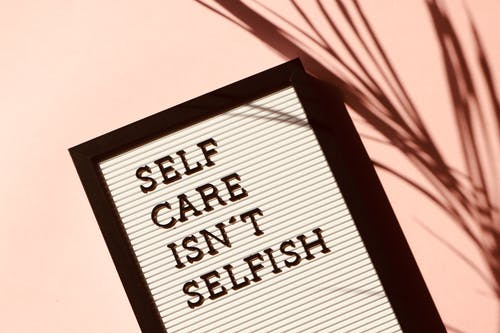
The Importance of Self Care for Nurses
It’s time to talk about selfcare. We’re living in the age of burnout and resignations, and no other profession feels that more right now than nurses.
Nurses and other healthcare workers have endured a very tiresome and worrying couple of years, and there’s no doubt that increasingly dangerous work conditions combined with longer hours and so many uncertainties have had a negative impact on nurses overall wellbeing.
Nurses know more than anyone the importance of good overall health, and taking a holistic approach to your wellbeing is essential to keeping your mind and body healthy.
But oftentimes, as people who spend their days caring for others, it can be easy to forget the importance of taking time in your own day day for a little self care. Taking time for you, even if it's only 20 minutes a day, can do wonders for both stress levels and productivity. Forcing yourself to slow down may feel like an foreign concept when you’re used to working a mile a minute, but now more than ever, it’s absolutely vital that you do.
The bottom line is that nurses are busy, exhausted and overworked, so finding little moments throughout the day to just do you should always be a priority.
Self care might sound like another buzzword or overused hashtag, but practicing the art of self love is actually a critical part of any healthcare worker's life. The fifth provision of the American Nurses Association’s Code of Ethics states that the moral respect that nurses extend to all human beings “extends to oneself as well: the same duties that we owe to others we owe to ourselves.”
So, look at self care as a necessary part of your job; something you need to do to keep your body and mind at its best. But we get it, that’s easier said than done. So, here’s a couple of quick self care practices that can keep you feeling zen even on the most challenging days.
Meditation

On any given day, a nurse will deal with multiple emotionally and psychologically tolling situations, so taking time away from the hectic-ness to decompress and give their minds a break is an absolute must. Everyone has heard of meditation, but countless studies have found that engaging in regular meditation can significantly reduce stress, anxiety and even physical pain.
It sounds like a simple and obvious concept, but getting yourself into the habit does require a little discipline. The great thing about meditation is that you can do it practically anywhere. There’s no need to sit on the floor and assume a lotus potion, you can just pop in some headphones in the break room and give your mind and body a much-needed rest. And if you have a hard time falling asleep after a particularly stressful day, mediation has also been proven to be an effective sleep aid.
There’s a ton of great free apps out there that provide a full range of guided meditations that are tailored to specific topics, like anxiety, productivity and sleep. Or, you can simply find a quick meditation on Youtube that will center your mind and body in just a few short minutes.
Get Moving

Considering you spend your entire workday on your feet, the last thing you think of when it comes to self care is anything that requires you to burn even more energy. But engaging in a few minutes of physical activity a day can do wonders for increasing endorphins and reducing feelings of stress.
A lot of times, exercise can feel like an obligation that we just don't have the energy for, but this isn't about completely changing your lifestyle or trying to attain some lofty fitness goal. It’s about doing something for yourself that makes you feel good. And while you’re constantly moving in your profession, spending a few minutes being active without having a million things on your mind can help you push through.
Whether it's a 10 minute walk in the evening, or getting in some stretches or yoga first thing in the morning, a little bit of activity a few times a week can rejuvenate both the mind and body.
Digital Detox

Everybody needs downtime away from the distractions of modern technology, but it’s especially important for nurses who tirelessly attend to the needs of their patients while also managing the technical aspects of their profession. We know that turning your phone off might not be realistic given the demanding requirements of your job, but on your off days or even one evening a week after work, try turning off your phone or iPad for an hour and focusing on being present.
Studies have shown that partaking in regular digital detoxes, even for a short period of time, can reduce stress levels and improve your mood overall. Nurses deal with systems and screens all day long, and it can be extremely draining both physically and mentally. So, giving yourself a screen time break to read a book.
Plan Ahead

The key to sticking to your self care ritual is being prepared. Taking 5 minutes at the start of your week to plan what acts of self care you’re going to make time for can help you stick with it.
Nurses face so many unknowns every single day, so having a weekly plan where you have carved out time just for you can help you get through the most difficult of days. Having a few simple constants in your week can make you feel more organized and together, even when your workday throws the most unexpected things at you.
Whether you use the notes app on your phone, or put pen to paper, take some time to think about some activities that will make you feel better during the work week. And don’t be too hard on yourself if you don’t stick to it, spend time exploring different forms of self care until you find the perfect routine that fits your needs and busy schedule.
Self care has always been essential for the wellness of nurses, but no more than ever it’s important to make a conscious effort to put themselves first once and a while. As we head into a 3rd year of uncertainty, a little self love is the least that you deserve.
SHARE:

